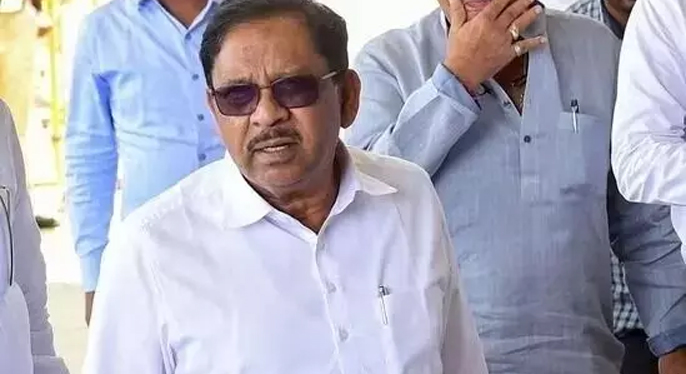Mumbai: Heavy rains lashed Mumbai and neighbouring Thane district overnight, causing water-logging at several places and affecting local train services and road traffic movement on Tuesday morning, officials said.
The Brihanmumbai Municipal Corporation (BMC) has appealed to residents to stay at home and urged commercial establishments, except those providing essential services, to remain closed on Tuesday as heavy rains are likely to continue for next 48 hours.
Suburban train services on the harbour line were stopped in the morning due to water-logging on rail tracks while services on the western and central lines were also affected, a civic official said.
Local trains in Mumbai and suburbs are currently being operated only for those involved in essential services in the wake of the coronavirus crisis.
A landslide near suburban Kandivali disrupted vehicular movement from western suburbs towards south Mumbai, the official said. Traffic movement from Byculla to south Mumbai was also affected due to inundation at some places, he said.
The Santacruz observatory in western suburbs recorded 254 mm rainfall since Monday night while the Colaba observatory in south Mumbai recorded 220 mm rain during the same period, India Meteorological Department (IMD), Mumbai, Deputy Director General K S Hosalikar said.
The weather station at Mahalaxmi recorded 172 mm rain, while that at Vidyavihar reported 159 mm rain. Besides, the weather stations at Ram Mandir (near Goregaon in western suburbs) and Mira Road recorded a rainfall of 152 mm each.
The other weather stations in north Mumbai and Thane also recorded over 150 mm rainfall. The trend would continue for next 48 hours, the official said.
The BMC has deployed high capacity water pumps to discharge water from streets in Byculla, Bhandup and some other areas, a civic official said.
The civic body appealed to commercial and business establishments, except those involved in essential services, to remain shut in view of the heavy downpour.
"Residents should also stay at home and avoid venturing out, the BMC said in a statement.
Let the Truth be known. If you read VB and like VB, please be a VB Supporter and Help us deliver the Truth to one and all.
Kolkata (PTI): Seven people were arrested from the Parnashree area in the southern part of the city for allegedly running a fake call centre, a police officer said on Saturday.
Acting on a tip-off, police raided a house on Netaji Subhas Road on Friday night and found the fake call centre operating from the ground floor, he said.
Preliminary investigation revealed that the accused had set up a bogus company using forged documents and posed as employees of an antivirus firm to call citizens in the US, the officer said.
"The callers would gain the trust of victims and then use remote access to take control of their phones or other digital devices. The accused allegedly siphoned off large sums of money, running into millions of dollars, from victims' accounts," he said.
Five laptops, two WiFi routers, six mobile phones and four headsets were seized from the accused, he said, adding that the seven are being questioned to ascertain the full extent of the racket and to identify others involved.





